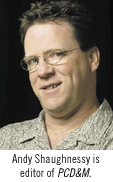Where the Grads Are

One inescapable part of the job of editor is opening unsolicited press releases. Every day I receive up to 100 press releases in my inbox. Most are fairly unremarkable.
Recently, one announcement caught me by surprise. A certain industrial zone in China – I won't mention its name – boasted that its center city was home to 200,000 "experienced scientists, engineers, and technical and vocational specialists."
The area is also home to 13 colleges and "scientific research institutions," 700 training centers and five vocational schools. If this were a city in the U.S., some of you entrepreneurial types might be planning to open a plant or an office there as soon as possible. An educated populace living in a low-rent district (and willing to work for, ahem, competitive wages) is hard to argue with.
We've heard all the stories about India and China graduating hundreds of thousand more engineers than North America and Europe. So I asked myself: What part of the U.S. can boast the most educated work force? Let's settle on a bachelor's degree as evidence of education, because the U.S. Census Bureau tracks that sort of data by city, county and state. What city in the U.S. has the highest concentration of people with a BS or BA? According to the Census Bureau's 2004 data, Seattle has the highest percentage of residents over the age of 25 with a bachelor's degree – 51.3%. Seattle also took the top spot in 2003 with 51.6%.
Seattle nearly doubles the national average: In 2004, 27% of U.S. residents over 25 had bachelor's degrees. Why? One obvious influence is the concentration of high-tech corporations like Microsoft and Boeing in Seattle. And the presence of the University of Washington helps to drive up the numbers, although the Census Bureau data excludes those living in college dorms. San Francisco came in second with 51%, and third at 49.7% was Raleigh, NC (the margin of error means it could be a three-way tie). San Francisco and Raleigh have traded second and third spots for the past couple of years, and it's not hard to see why. Silicon Valley is still home to a number of high-tech companies; even five years after the dot-com bust, the Valley is home to the largest group of PCD&M subscribers. And Research Triangle Park is expanding like a pre-Internet San Jose. In fact, PCB Design Conference East will be held in nearby Durham this year.
Educated people move to Seattle, San Francisco and Raleigh to be near their new jobs. Same goes for the cities that came in fourth and fifth: Washington, D.C. (47.7%) and Austin (45.1%).
But because jobs that demand a degree are often concentrated in cities, the percentages of degreed folks drop precipitously when we look at states instead of cities. Counted as a state, Washington, D.C. ranked No. 1 in 2004, with 47.7% of its over-25 residents bearing a college sheepskin. Massachusetts was second, but at 37.4%, followed by Maryland (34.8%), Connecticut (34.6%) and Colorado (33.7%). Washington state came in tenth (31.3%), California thirteenth (29.4%) and North Carolina thirty-first.
It's tough for cities like Seattle or Raleigh to compete with an industrial zone that boasts 200,000 scientists. The scale is just too great. Fortunately, when execs are deciding where to open up that next office or facility, there's more to the decision-making process than finding the city with the highest concentration of "educated" residents. Some U.S. companies are finding that out the hard way. We're already seeing electronics companies pull back offices and resources from overseas locations. The promise of a cheap, educated labor force hasn't been all it was cracked up to be, and problems with quality, communication and hidden costs abounded.
The U.S. can't match the sheer quantity of college grads and engineers in Asia, but we can compete on quality. American universities are some of the best in the world; why else would so many foreign students be enrolled here? There are plenty of quality graduates living in the U.S. And in the new economy, quality beats quantity every time. PCD&M
ANDY SHAUGHNESSY is editor of PCD&M.




